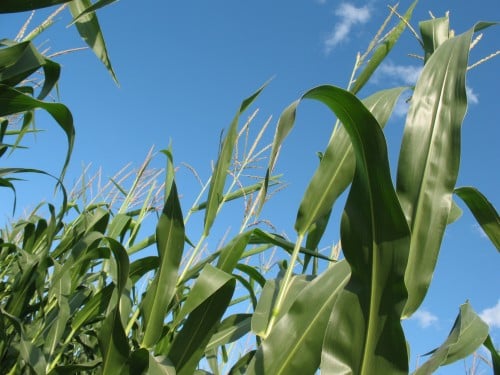 I had the opportunity to run a workshop at November’s Community Food Security Coalition conference on “Corporate Power, Movement Building, and the 2012 Food and Farm Bill.” The focus of the workshop was intended to be a discussion of how to address corporate consolidation of the food system through the food and farm bill. Trouble was, at that point, it looked like the bill was being written in a secret process by select members of the Congressional agriculture committees, and no one really knew what was happening with it. It looked very likely that there would be no chance for the open public debate about the bill that many advocates had been anticipating.
I had the opportunity to run a workshop at November’s Community Food Security Coalition conference on “Corporate Power, Movement Building, and the 2012 Food and Farm Bill.” The focus of the workshop was intended to be a discussion of how to address corporate consolidation of the food system through the food and farm bill. Trouble was, at that point, it looked like the bill was being written in a secret process by select members of the Congressional agriculture committees, and no one really knew what was happening with it. It looked very likely that there would be no chance for the open public debate about the bill that many advocates had been anticipating.
Nonetheless, food and farm bill aside, the four panelists and audience of about 100 found more than enough to discuss about corporate concentration – and no wonder, at a time when the top four meatpackers process 85% all beef in the US, Monsanto owns patents on 80% of corn seed, and Walmart controls more than half of the grocery market in many regions, the issue of corporate control of our food system affects farmers, workers, and all eaters.
John Peck, president of Family Farm Defenders and a professor of economics, gave an impromptu economics lesson on how the independent dairy farmer is affected by corporate-style dairy co-ops and the entity that sets dairy prices, the Chicago Mercantile Exchange. Mia Dell, of the United Food and Commercial Workers Union, laid out how food workers are squeezed when a major buyer (e.g., Walmart) demands low prices from its suppliers – to trim their own costs, the suppliers then cut worker wages. Rosalinda Guillen, a farm worker and director of Community to Community Development, spoke about the disenfranchisement of farmworkers on corporate-run farms. She called for support of worker-owned farm co-ops and a focus on immigration reform as another avenue (in addition to the food and farm bill) to reform the food system. Adam Scow of consumer advocacy group Food and Water Watch discussed how the so-called “secret farm bill,” influenced by corporate lobbyists, “is pretty much disenfranchising the entire country.”
A lot of the information the panelists shared felt pretty overwhelming – it’s hard to know how to confront a corporate behemoth – but there was hope, too. From the audience, independent farmers, environmentalists, and consumer advocates stood up to share their own experiences and to express their solidarity with each other and with the food justice community at large. Rosalinda reminded the room that community food security advocates need to understand that farm workers are partners in the struggle, and stand with them. Finally, Adam spoke about the importance of building a movement, to change the food and farm bill or any other law: “It’s not just about lobbying, or policy, or legal work.… Many unjust laws can only be defeated by grassroots-based movement,” he said. And so, in the end, by bringing together diverse sectors and viewpoints in a way that continues to build and strengthen the movement, this workshop may yet have an impact on next year’s food and farm bill.
Take Action!
Visit the Food Security Learning C enter to learn more about the Food and Farm Bill.

